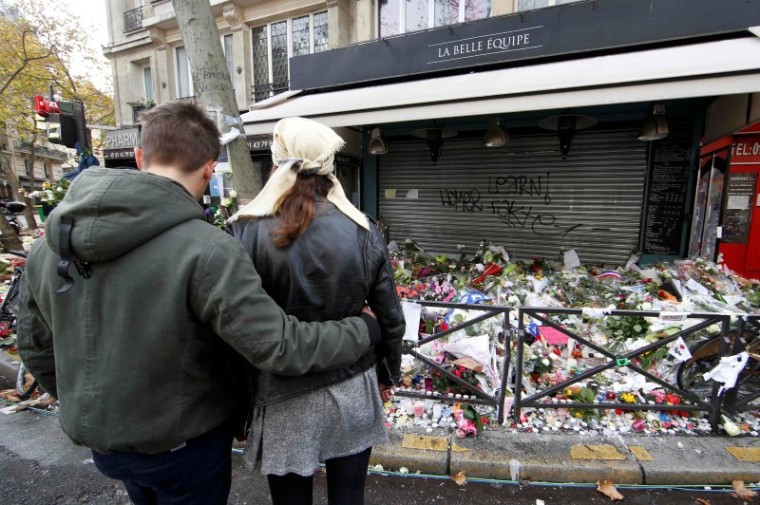

Perspective is a matter of faith—what we believe shapes the way we see the world, ourselves and each other. Do we see hope, life and glory or do we see despair, debauchery and destruction? This is much, much more than a 'glass half full', 'power of positive thinking' way of viewing life. This is a question with its roots in the very foundations of the Christian faith.
The Garden of Eden. A beautiful place. Literally a garden of delight, full of every good thing. Into this garden God determined to fashion creatures reflecting his image—and so he created Man and Woman, sharing breath with them and delighting in their presence. Man and Woman were captivated by the delight they saw in their Creator's eyes, and were sustained by the Spirit breathed back and forth between them and the One they were made to reflect.
Trees of our choosing
In the garden were two particular trees, the Tree of Life and the Tree of the Knowledge of Good and Evil. The Tree of Life was given to mankind with completely unrestricted access as an expression of God's goodness and grace. The Tree of Knowledge on the other hand, was expressly forbidden and dire warnings of devastating consequences were pronounced.
The choice was offered. How was humanity going to choose to see their place in creation? Would they trust and delight in their Creator's desire for them, or would they choose to believe God was holding something back from them and seek to create their own identity?
The sliding scale of goodness and not-so-goodness
In the end, we chose to eat from the Tree of Knowledge, a choice that has been owned by all of humanity throughout the entirety of human history. We love to decide what's right and wrong all around us. We hold to a scale of good and evil and are continually trying to find our place on it, drawing lines on acceptable and unacceptable behaviour in ourselves and in others.
'I may not be as good or holy as God, but I'm trying my best and doing pretty well. I'm certainly doing better than that guy over there. I mean seriously, does he think we can't see how his addiction is affecting his family? And ISIS. Don't get me started on ISIS. They are the embodiment of evil. They all deserve to die!'
We can expect this kind of thinking to be prevalent in the world at large, but where do we, the Church stand? Is the tree we are eating from any different?
The delusion of 'good judgment'
Throughout his ministry, Jesus exhorted his listeners to love their enemies and reject the desire to draw their own conclusions on what is good and what is evil. To Jesus there is no line to be drawn, no scale to be placed upon. We are all in the same boat, all of us in need of a saviour.
So when people wanted to draw their lines and reject others, Jesus always placed himself on the other side of the line, embracing those who would be excluded and modelling a greater way.
In Matthew chapter 21 verse 31, Jesus tells the 'righteous' Pharisees that prostitutes and tax collectors are entering the Kingdom of Heaven before them. Their 'good' judgment was causing them to miss out on what God was doing right in front of them.
Jesus offers a new way to interpret the scriptures, going so far as to say that the scribes and Pharisees, with their thousands of years of scriptural study, have never understood the heart of God. 'No one has seen the Father', he proclaims as he sets about breaking down the walls we would use to separate ourselves from others. These walls keep us from seeing the heart of the Father and loving our neighbour.
Our own desire to judge right and wrong only serves to highlight which tree is feeding our perspective. For Jesus, who constantly taught his listeners to love their enemies and find God in the 'least of these', using his words to exclude anyone would be a most unpleasant notion.
The Jesus Tree
This is not to say that sin is not a problem. Anyone can see this world is hell-bent on destroying itself. We all make choices to disregard God to our detriment.
Yet it is the insistent, human desire to eat from the Tree of Knowledge keeping us from seeing and eating from the Tree of Life. The Tree of Knowledge entices us with the thought that there is something we must, and therefore can, do to be closer to God on the scale of good and evil and have a fuller life. We come to expect it of ourselves and of others, but the promise of life under this false tree only becomes a greater burden for us and for those we evangelise to.
Jesus is the Tree of life personified, incarnated, offering an unrestricted and unconditional fruit of union and delight to every dark, aching corner of humanity. Jesus points us to a love transcending our systems of right and wrong, fully expressing itself in death and forgiveness for everyone on the scale.
These two trees are diametrically opposed to each other. We cannot hope to incorporate both mindsets. The associated paradigms are completely incompatible—one brings Life while the other only brings death.
So the choice once again comes back to us, the ones who know Life. The world is quite aware of its separation from God. We have all eaten from the false tree and felt its impact in our lives. What the world lacks is any knowledge of the real Tree of Life. They are longing for it, desperately searching for some good news. What fruit will we choose to offer them? The tree we choose could change our view of the world.
Russell Croft has a heart for community and reaching out to the marginalised and forgotten. He is getting to know the God of infinite goodness and is living the joyful, salubrious life of faith with his wife Belinda and three children in the eastern suburbs of Melbourne, Australia.
Russell Croft's previous articles may be viewed at http://www.pressserviceinternational.org/russell-croft.html
